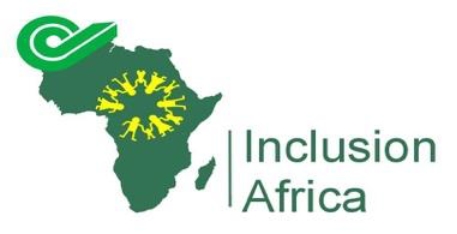Climate & Care Initiative Fund
Strengthening the Climate & Care Nexus in Latin America, the Caribbean, and Sub-Saharan Africa
The Climate & Care Initiative, backed by the International Development Research Centre (IDRC) and led by a consortium including the United Nations Research Institute for Social Development (UNRISD), Oxfam Canada, Southern Centre for Inequality Studies (SCIS) Wits University, Universidad de San Martín and Fundación Avina, in collaboration with the Global Alliance for Care, supports innovative solutions that integrate climate action and care work to build a more equitable and sustainable future.
The Climate & Care Initiative Fund received an exceptional response, with over 1,200 applications from grassroots organizations, NGOs, and social movements across the prioritized countries in Latin America, the Caribbean, and Sub-Saharan Africa. This strong participation reflects the increasing recognition of the climate-care connection and the need for dedicated funding and policy solutions in this area
The Climate & Care Initiative Fund received an exceptional response, with over 1,200 applications from grassroots organizations, NGOs, and social movements across the prioritized countries in Latin America, the Caribbean, and Sub-Saharan Africa. This strong participation reflects the increasing recognition of the climate-care connection and the need for dedicated funding and policy solutions in this area
About the Fund
The Climate & Care Initiative Fund was designed to support community-driven solutions that tackle the increasing demand for care due to climate change, promote a more equitable distribution of care responsibilities, and ensure that climate action includes a care perspective.
Key aspects of the fund:
Financial support: Up to $50,000 per selected project
Geographic focus: Latin America, the Caribbean, and Sub-Saharan Africa
Total funding allocated: $600,000
Implementation period: Up to 14 months
Selected projects focus on areas such as:
Addressing the increasing care burden caused by climate change
Integrating care and gender equality into climate adaptation and mitigation strategies
Promoting decent working conditions in the care and green economy sectors
Strengthening community-led solutions that link care and climate resilience
Applications for this funding cycle are now closed, and selected
organizations have already begun implementing their initiatives.
organizations have already begun implementing their initiatives.
Meet the Selected Organizations
Thirteen organizations were selected based on their innovative approaches, capacity for impact, and potential to generate evidence to influence climate and care policies.
Each project showcases practical solutions that address the challenges at the intersection of climate change and care work.
Each project showcases practical solutions that address the challenges at the intersection of climate change and care work.

Mujer y Medio Ambiente, A.C.
Mexico
Territories in Transformation: Contributions from Rural and Urban Communities to Connect Climate Change and Care
The project aims to place the climate-care nexus on local agendas by making visible the spontaneous mitigation and adaptation efforts of community organizations and their impact on the care work of women, girls, and other disadvantaged groups. It will strengthen organizational, technical, and planning capacities so women and men can design sustainable, inclusive actions and advance toward care redistribution. Centering a gender-equal and intersectional approach, the initiative highlights women’s role as agents of change for climate justice and for overcoming the gender subsidy that limits their full participation.
Website: https://www.mmambiente.org/
Social media:

Inclusion Africa (IA)
Kenia & Ghana
Adaptive Futures: Climate and Care for People with Intellectual Disabilities in Africa
This project addresses the disproportionate impact of climate change on people with intellectual disabilities in Africa, who are often excluded from adaptation efforts. Root causes include stigma, the absence of inclusive policies, and limited access to support systems and infrastructure. Living in highly vulnerable and marginalized communities, they face greater risks from climate shocks such as floods, droughts, and extreme heat. The initiative seeks to make their needs visible, promote inclusive disaster preparedness, and advocate for policies that ensure their participation in climate resilience strategies, bridging a critical gap in care and climate action.
Website: http://inclusion-africa.org/
Social media:

Fundación Barranquilla+20
Colombia
Women Caregivers for Life and Climate Justice in Colombia and Abya Yala
This initiative brings together 100 young women, elders, and territorial defenders to position care as essential for well-being and climate resilience. Led by women from diverse ecosystems and ethnic communities, it strengthens the climate-care link across local, national, and global levels. The project promotes advocacy within Colombia’s climate system (SISCLIMA) and NDCs, integrating care into national climate and care strategies. It includes a Regional Diploma in Feminist Eco-Care, participation at COP30, and a report for the UNFCCC Gender and Climate Action Plan—framing care as green work and a key pathway to climate justice.
Website: https://barranquillamas20.com
Social media:

Red Juvenil de Derechos Humanos
Colombia
Community Action for Resilience, Equality and Sustainability (CARES)
Implemented in Nariño, Colombia, CARES focuses on young Indigenous women facing intersecting vulnerabilities linked to climate change and gender inequality. The project aims to enhance climate resilience and gender equity through integrated strategies that redistribute care work and strengthen community adaptation capacities. By embedding care and gender perspectives into climate mitigation and vulnerability reduction efforts, CARES addresses systemic barriers limiting Indigenous women’s participation and economic opportunities. Its overarching goal is to transform local disaster management by building a collaborative ecosystem where young Indigenous women become central decision-makers in driving sustainable and inclusive community responses.
Website: https://www.redjdh.org
Social media:

Asociación Civil el Amanecer de los Cartoneros
Argentina
Between Caring and Recycling: Women, Children, and the Climate Challenge
This project supports five childcare centers in waste-picking communities across Córdoba, Corrientes, Chubut, Buenos Aires, and Capital Federal. These centers will provide 175 children with meals, health monitoring, and educational and recreational activities, enabling their mothers—women waste pickers—to access better economic opportunities. Additionally, 95 women will receive training in labor rights and community management, promoting autonomy and improved working conditions. The initiative integrates care, climate, and labor justice, and is grounded in partnerships with cooperatives and municipalities to ensure long-term sustainability and impact.
Website: http://acamanecer.org.ar

Centro de Derechos de la Mujer de Chiapas A.C.
Mexico
Care and Sustainability: Redistributing Care Work and Protecting the Environment in Tseltal and Ch’ol Indigenous Territories
This project aims to strengthen the political participation of Indigenous Tseltal and Ch’ol women in the Selva region of Chiapas, Mexico. It seeks to challenge patriarchal structures that limit their access to land and resources by promoting their involvement in community and ejido assembly decision-making spaces. By connecting care work with environmental protection, the initiative promotes a more equitable redistribution of responsibilities and fosters sustainability through Indigenous women’s leadership in the defense of their territories.
Social media:

AWARE Uganda
Uganda
Improving Care Work Affected by Climate Change Impacts in Kaabong, Karamoja Region
This project supports women in the Kakamar and Lolelia subcounties of Kaabong, Uganda, where they carry the burden of unpaid care and domestic work worsened by climate change. Working with 10 women’s groups, the initiative integrates climate-smart agriculture through farmer field schools, improves home care systems, and strengthens food security. It trains men and boys in caregiving roles to reduce gender-based violence, and provides entrepreneurship and VSLA training for women. The project also promotes local policy advocacy, enhances women’s mobility and autonomy, and supports women’s leadership in care and climate decision-making for long-term resilience and equity
Website: https://www.awareuganda.org
Social media:

Laboratório do Observatório do Clima
Brazil
Expansion of the "Defensoras por Defensoras" Program
The "Defensoras por Defensoras" program provides a space for support and empowerment among women protecting their territories, ecosystems, communities, and the planet’s climate. These women are on the front lines of territorial protection, yet face invisibility and daily threats due to the disproportionate impacts climate change has on women, exacerbated by their dual caregiving role in society. This initiative strengthens this network, creating a space for knowledge exchange, strategy development, and supporting territorial defense. The program includes Indigenous, Black, Quilombola, rural, peripheral women, and others from territories at risk from climate change across Brazil.
Website: https://www.oc.eco.br/
Social media:

El Chañar-Asociación civil al servicio del Movimiento Nacional Campesino Indígena Somos Tierra
Argentina
Recognition of the Role of Rural and Indigenous Women in Life Care and Climate Change Mitigation
The project aims to understand and analyze the gender inequalities faced by rural and Indigenous women of MNCI-ST regarding caregiving roles, with a focus on environmental sustainability and food security. The goal is to develop educational and communication strategies that promote their visibility and empowerment in strengthening climate-resilient communities. This includes strategies to redistribute caregiving tasks, enhance the commercialization of food and goods for better valuation, and advocate for a national law recognizing the role of rural and Indigenous women in climate change mitigation and the protection of biodiversity.
Website: https://mncist.com.ar
Social media:

Youth and Urbanism Community Based Organization
Kenya
Climate and Care for Her: Strengthening Resilience for Women in Urban Slums
Youth and Urbanism (Y&U) addresses the vulnerabilities of young girls and women in Kenya's informal settlements, like Mathare, by focusing on the intersection of climate change and caregiving. The initiative gathers data to inform interventions, amplifying women’s voices in climate discussions and promoting locally-driven solutions. Y&U advocates for climate care financing and decent care as green jobs, while integrating these issues into policies and budgets. The project is sustained through programs under Climate Change and Gender Equality pillars and supported by advocacy tools, ensuring resilience, equity, and climate justice for future generations.
Website: https://youthandurbanism.org/
Social media:

Public Services International LBG
Ghana
Supporting Health and Care Workers for Climate Resilience in Ghana
This project addresses the intersection of climate change and care by improving the working conditions and resilience of health and care workers in Ghana. Through an action-based learning approach, it engages workers in identifying solutions to occupational hazards worsened by climate impacts, such as extreme heat and environmental degradation. It conducts risk assessments, provides training, and advocates for better conditions and policies. The project also builds the sector’s capacity to manage climate-related health challenges like vector-borne diseases and malnutrition, ensuring workers’ voices shape climate and health policies for more equitable, sustainable, and climate-sensitive systems.
Social media:

Transparency and Accountability in Totality Initiative (TinT-FollowTaxes)
Niger
Empowering Women Care Workers in Vulnerable Communities for Climate Resilience and Adaptation in Kaduna and Taraba State
Women in rural communities in Kaduna and Taraba State face severe climate impacts, including droughts, floods, and declining crop yields. These regions also host displaced victims of farmer-herder conflicts and banditry, further straining resources and promoting unsustainable farming practices. Women in these communities bear a significant unpaid caregiving burden, managing children, the elderly, domestic tasks, and those affected by disease and displacement. Despite their crucial role in caregiving, cooking, cleaning, and supporting livelihoods, their efforts remain unrecognized and unpaid, highlighting the need for empowerment and support to enhance their resilience and adaptation to climate change.
Social media:

Instituto de Ação para o Desenvolvimento Sustentável do Sul do Amazonas – ASA
Brazil
Women and Climate: Challenges and Solutions for Care and Climate Adaptation in the Legal Amazon
The project aims to integrate gender, care, and climate dimensions into municipal public policies. It focuses on three main areas: (I) diagnosing climate impacts and care demands, proposing solutions to strengthen protection networks; (II) training women and empowering local organizations in Humaitá, increasing their participation in public decision-making through the Municipal Women’s Rights Council; and (III) creating spaces for collective discussion across different Amazon territories to share solutions and best practices related to climate adaptation and care policies. The project seeks to strengthen the correlation between climate and care policies, inspiring regional and national strategies for policy improvement and enhancing the care agenda in climate negotiations.
Next Steps and
Future Updates
The Climate & Care Initiative Fund is not just about financial support; it is part of a broader strategy to advance global conversations on the climate-care nexus. Selected organizations will contribute to building evidence, sharing lessons learned, and advocating for systemic change in climate and care policies.
Follow this space for:
Updates on the progress of selected projects
Insights and research findings from the climate-care nexus
Upcoming events and discussions at global policy forums
If you have any questions or need further information, feel free to contact us at:
[email protected]
[email protected]




In collaboration with:

Funded by:
